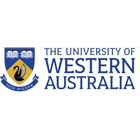Master of Business Information and Logistics Management
Master of Business Information and Logistics Management
Do you want to build your skills in project management, and focus on improving quality, workflow management, processes and systems? The Master of Business Information and Logistics Management will develop and expand your skills to manage IT infrastructure projects, determine enterprise systems requirements, analyse organisational data for business intelligence, lead…
Categories
COURSE DESCRIPTION
Do you want to build your skills in project management, and focus on improving quality, workflow management, processes and systems?
The Master of Business Information and Logistics Management will develop and expand your skills to manage IT infrastructure projects, determine enterprise systems requirements, analyse organisational data for business intelligence, lead information systems strategies, manage supply chains, and apply emerging technologies across the enterprise.
Course structure
Postgraduate coursework degrees and combined (coursework and research) degrees comprise a number of units.
Graduate outcomes
Graduates of the Master of Business Information and Logistics Management will have advanced theoretical and technical business information management knowledge and skills, such as:
The ability to apply, analyse, synthesise, evaluate and communicate information from multiple sources to make business decisions and demonstrate mastery of business information management theory;
Use cognitive and technical skills to generate and evaluate complex concepts and problems in business information management;
Communicate clearly, effectively and appropriately to influence and relate to multiple stakeholders across a range of business contexts.
Why study this course?
You’ll apply artificial intelligence and optimisation programs to real business problems. In addition, the course provides opportunities to learn about strategic governance of information resources and supply chain management.
The course meets the growing need for professionals that can span business, data analysis and technology.
You may elect to take on an industry placement or industry project unit to advance your practical experience.
Career Pathways
Graduates from the Master of Business Information and Logistics Management may pursue careers as a business analyst, data analyst, programmer, online marketing specialist, customer relationship manager, IT support or information manager.
Further Study
After appropriate work experience, graduates may choose to enrol in the Master of Business Administration (MBA).
REQUIREMENTS
(1) To be considered for admission to this course an applicant must have—(a) a Bachelor’s degree, or an equivalent qualification, as recognised by UWA; and either:(b) the equivalent of a UWA weighted average mark of at least 50 per cent; or(c) at least two years professional experience in a relevant occupation; or(2) completed a Graduate Certificate in Business Information and Logistics Management or Graduate Certificate in Commerce at UWA.
English language requirements:
TOEFL (paper-based): 570 with a Test of Written English (TWE) of no less than 4.5
IBT TOEFL (Internet-based test score): 82 with 22 for writing, 20 for speaking, 20 for listening, and 18 for reading
IELTS (Academic): 6.5 (no band lower than 6.0)
Cambridge Certificate of Proficiency in English: C pass
Cambridge Certificate in Advanced English: B grade
Pearson Test of English (PTE) (Academic): Overall score of 64 with a minimum score of 64 in the Reading and Writing sections, 59 in the Speaking section and 54 in the Listening section
EDUCATIONAL INSTITUTION
The University of Western Australia (UWA) is a proud member of the Group of Eight and is the only university in Western Australia to be ranked in the world top 100 universities (QS World University Rankings 2023).UWA’s main campus is located in Perth, Western Australia and is home to more than 23,000 students. Perth is Australia’s fourth-largest city with over two million people from a variety of cultures worldwide, a strong economy and vibrant lifestyle. Perth is one of the country’s most affordable cities, the closest major Australian city to Asia, and in the same time zone as most of Asia.

